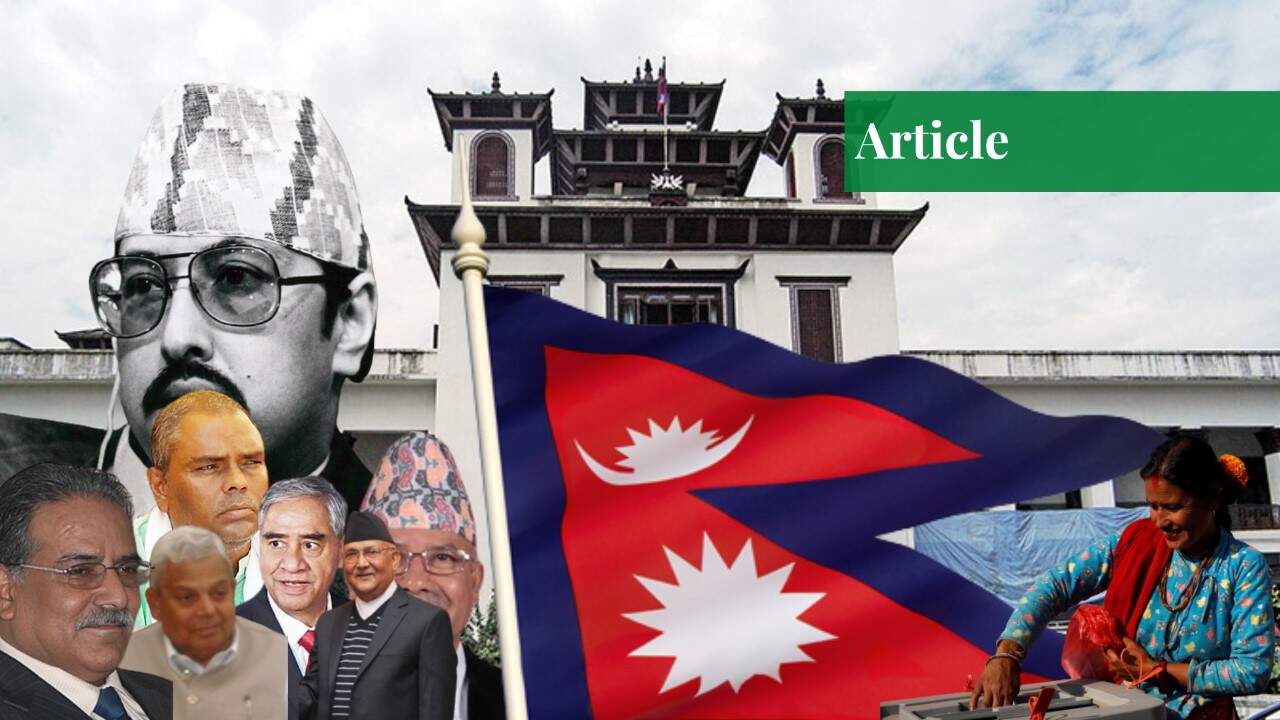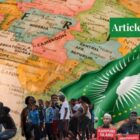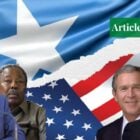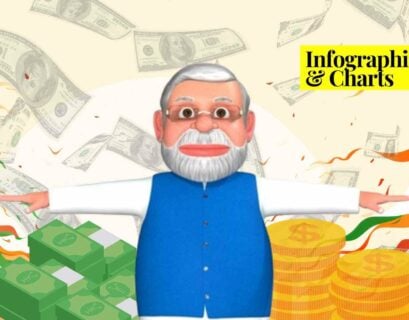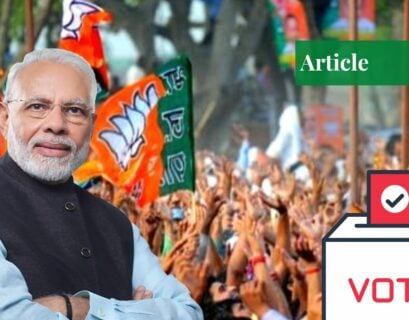Introduction
The impulsive turns and twists in Nepali politics are hard to skip when one evaluates its political system. After adopting a permanent constitution in 2015, Nepal witnessed diverse events including elections of local, federal, and provincial governments, unions and splitting of major parties, unconstitutional attempts of dissolving Parliament, and an alien union between traditional liberals and communists.
It has most recently observed electoral setbacks, with independent candidates beating entrenched party machinery in major cities. In addition to that, one of the major issues that continuously beat Nepal in political terms is corruption. Ever since the end of a decade-long civil war in 2006, corruption remains endemic in politics, the government, and the judicial system.
The country is also facing a six-year highest inflation rate. Nepal witnessed annual retail inflation of 8.56 percent in June. Foreign exchange reserves have declined to nearly $9b, according to the latest central bank data. Other problems include gender-based violence, underage marriage, and bonded labor.
Electoral System
In Nepal, the President is the head of the state who is elected by a parliamentary electoral college and state assemblies for up to two five-year terms. The Parliament then elects the Prime Minister. The conduct of legislative and provincial elections determines the legitimacy of the executive officer holder.
As a result of the parliamentary elections of July 2021, Sher Bahadur Deuba was sworn in as prime minister. While the current President, Bidhya Devi Bhandari, was reappointed in March 2018. Former Prime Minister Khadga Prasad Sharma Oli dissolved the body in December 2020 and May 2021, causing a constitutional crisis. Deuba was appointed following a Supreme Court decision that reestablished the Parliament for the second time in 2021.
The House of Representatives has 275 members who are elected to five-year terms. 165 out of 275 are directly elected in single-seat constituencies, while 110 are elected by proportional representation. The National Assembly consists of 59 members—56 out of 59 are indirectly elected to six-year terms by provincial and local leaders, while the President appoints the rest of the three as per the government’s commendation.
In January 2020, elections for 18 National Assembly seats whereby the Nepal Communist Party (NCP) won 16 seats. The rest of the 2 seats were won by the Rashtriya Janata Party-Nepal (RJP-N). Furthermore, when Prime Minister Oli lost control over his party, he dissolved the Parliament in an attempt to hold on to power through new elections in late 2020 and May 2021. However, when the Supreme Court restored the National Assembly in July of that year, the already elected representatives came back to power.
Political Pluralism
In the course of its 70-plus years of political history, starting from the late 1940s, the country has seen as many as seven constitutions and since then, none of the elected Prime Ministers have completed their full term in the office. Since July of the last year, Prime Minister Sher Bahadur Deuba has held power through an alliance of communists, including former Maoist rebels, and the centrist Nepali Congress party.
The main opposition to the current government is the Communist UML party of former Prime Minister KP Sharma Oli. The country has witnessed 10 governments since 2008, the year when the 239-year-old monarchy was abolished. Deuba has served the government as the Prime Minister five times and believes that he would hold the office two more times.
Smaller opposition parties get fewer chances of making it to the national level. The reason for this is that they have a 3 percent threshold for proportional representation in the lower house. Therefore, their performance sticks to the local levels only. Moreover, the sporadic outbursts of political violence limit the ability of the people of Nepal to exercise their political freedom freely.
Social discrimination also hinders the political participation of Nepalis against the constitution which gives equal rights to women and minorities to participate in the legislature. Moreover, a restricted definition of citizenship isolates stateless people.
A Strong Position for Independent Candidates
The local government in Nepal has made significant efforts in gaining public confidence. The representatives of the local government contributed to frontline services during the COVID-19 pandemic when the federal government was facing corruption charges. The result of this was that the independent candidates outperformed those affiliated with political parties in 4 out of 13 major cities of Nepal including Kathmandu.
This has marked a deviancy from the norm where traditional elites would control candidate selection. The federal government has to rebuild this trust in its new governance structure. Keeping in view their triumphs, many independent candidates announced their candidacy for the 2022 parliamentary elections in Nepal, and this decision is of much concern to the key political parties.
Amid these developments, the independent candidates have secured huge support from local voters, especially the youth. The independent candidates are well aware of the needs of the citizens to which they are now giving priority including health care, education, access to safe and clean drinking water, and sanitation facilities.
This shift in party agendas away from construction projects like roads and buildings has been welcomed by the locals. The 2022 parliamentary elections have given a chance to leaders and citizens of Nepal to have another look at their development concerns.
Internal Politics vs Geopolitics
The history of Nepal is full of splits and mergers of political parties, especially the Nepal Communist Party (NCP) which split in 2018 into two parties. This party conflict intensified when they started dragging the United States and its allies into their debates on real and imaginary issues.
The ideological standing of the Nepali political parties has always influenced Nepal’s geopolitics. Nepal signed both China’s Belt and Road Initiative (BRI) and the Millennium Challenge Corporation (MCC) floated by the US, with both having the objective of building infrastructure. However, the geopolitical dimensions divided Nepali politics to the extent of sidelining the major important internal issues.
The consequences of this geopolitical rivalry were often reflected in conducting Nepal’s relations in the neighborhood as well. Likewise, external politics has always remained uncomplimentary for Nepal due to the high level of geopolitical undertakings in the region. Nepal’s heavy dependence on the outside world for development makes the situation bad to worse as it does not allow Nepal to have its voice in international politics.
Hence, the political stability of Nepal depends on how it strikes a balance between domestic politics and international relations, including relations between China, India, and the West. Meanwhile, the geographical location and cultural affinity call for closer relations with both neighbors i.e., China and India. Nepal also has to maintain its relations with the Western countries for they contributed enormously to its development.
Conclusion
Voting is a civic right of the people of a democratic state, and elections provide both means and an end to maturing democracy. The local elections of 2022 proved to be an achievement for Nepali people in a post-conflict society, and since Nepal has conducted elections at the local level successfully, it can hope for a better political future.
Nepal’s experience with the 2022 local elections will provide a pathway for improvement in the parliamentary ones. It has been said that the two factors will play an important role in the future: how the country balances national and international politics, and to what extent, the country becomes economically self-sufficient in the days to come.
If you want to submit your articles and/or research papers, please check the Submissions page.
The views and opinions expressed in this article/paper are the author’s own and do not necessarily reflect the editorial position of Paradigm Shift.
